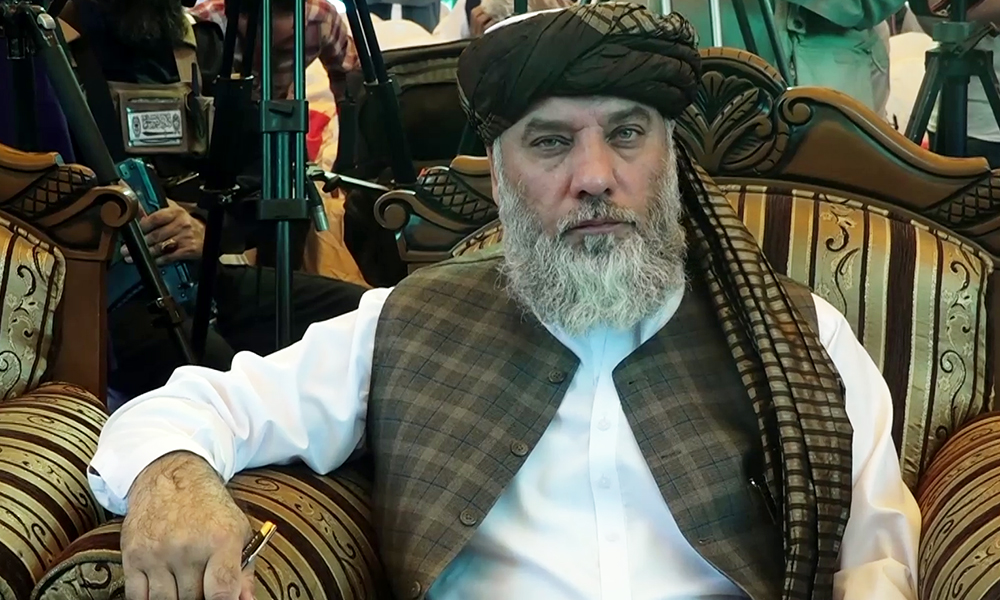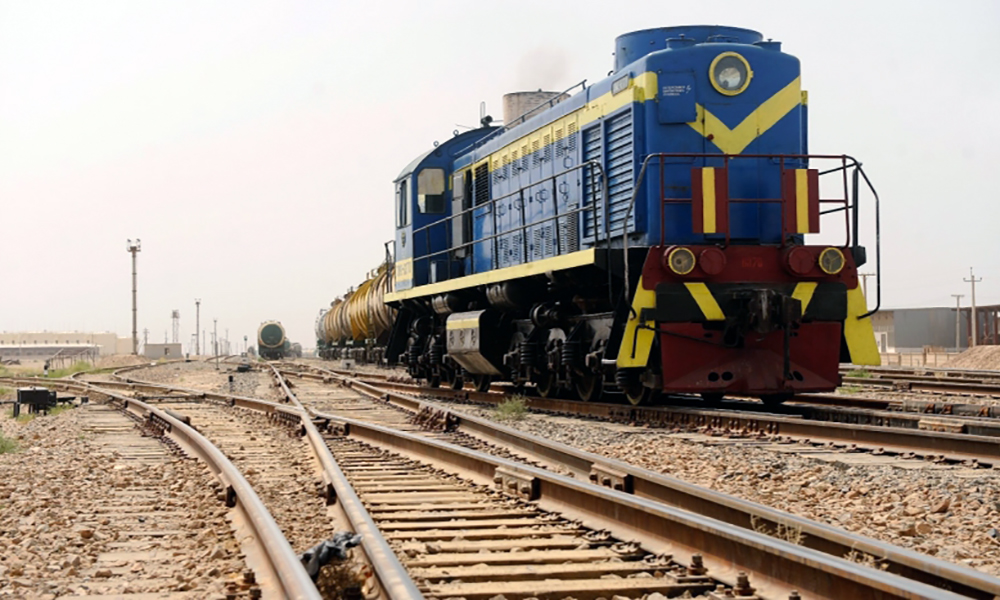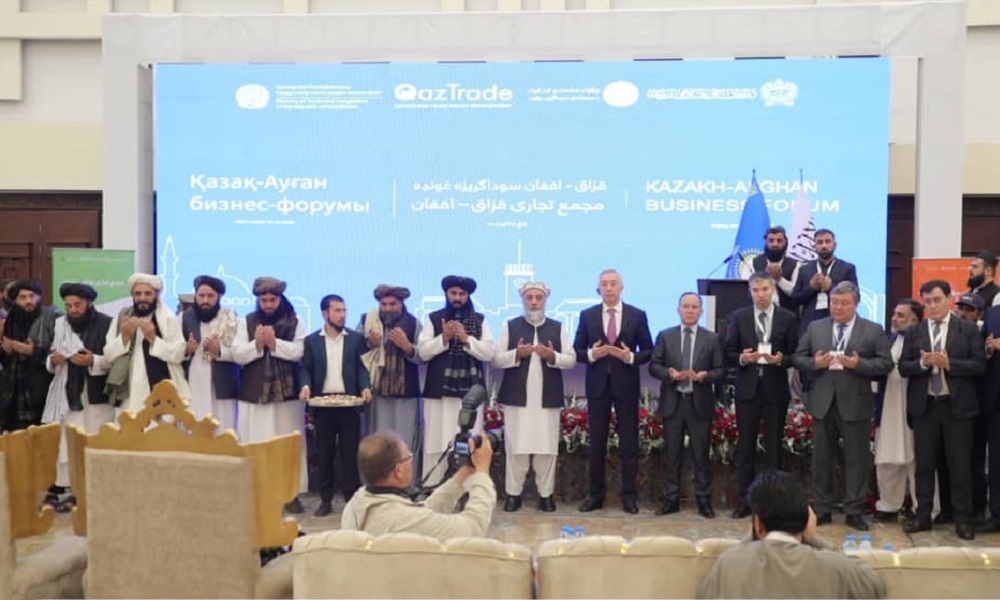Business
Azizi: Afghanistan needs ‘industrial revolution’ to be self-sufficient

The Islamic Emirate of Afghanistan’s acting minister of commerce and industry, Nooruddin Azizi, says that Afghanistan will not achieve self-sufficiency until an “industrial revolution” occurs in the country.
Speaking on Tuesday, Azizi said at the opening ceremony of a new iron smelting factory in Kabul that the Ministry of Industry and Trade is focusing more on strengthening domestic industries in order to lead the country towards economic self-sufficiency.
This factory was built at a cost of $10 million and 700 jobs have been created.
“The Islamic Emirate of Afghanistan is committed to supporting the economic strongholds and domestic production of the country, and be sure that we are committed to the development of our production,” said Azizi.
He added that the Islamic Emirate focuses more on domestic industries and provides serious support to investors inside the country.
“I will say clearly that we are committed to providing all-round support to the private sector and we will expand this process,” Azizi added.
Officials from the Ministry of Economy also said the country is moving towards positive economic developments and that the Ministry supports private sector investments.
“We consider the private sector as a strong partner in the country’s economy and we are ready to increase the role of the private sector in the self-sufficiency of the country’s economy,” said Abdul Latif Nazari, the deputy economy minister.
At the same time, the Chamber of Industries and Mines also says that when domestic products and artisans are supported, investment in the country will increase.
“The country’s domestic production has been supported by the Islamic Emirate, but if the support is extended, the private sector will invest more in the country’s production [facilities],” said Sakhi Ahmad Paiman, Deputy Head of the Chamber of Industries and Mines.
“The government, the nation, and the private sector should use domestic products, and the private sector should also produce high quality [goods] in order to solve the existing problems,” said Khan Jan Alkozi, a member of the Chamber of Commerce and Investment.
There are currently about 40 factories operating in the iron smelting sector in the country.
Business
Pakistan’s deputy PM discusses Trans-Afghan Railway Line project with Uzbek FM
On Thursday, in a post on X, Pakistan’s Foreign Ministry said Dar hoped that the three countries would soon sign the framework agreement for this important regional connectivity project.

Pakistan’s Deputy Prime Minister and Foreign Minister Ishaq Dar held a telephone conversation with the Foreign Minister of Uzbekistan, Saidov Bakhtiyor Odilovich, on Thursday to discuss the Trans-Afghan Railway Line Project.
This comes after Dar’s recent visit to Kabul, where he held talks with officials on the planned Uzbekistan-Afghanistan-Pakistan Railway Line Project.
The three neighboring countries signed an agreement in February 2021 to construct a 573-kilometer railway line through Afghanistan, connecting landlocked Central Asia to Pakistan seaports, with an estimated cost of $4.8 billion to enhance regional economic connectivity.
On Thursday, in a post on X, Pakistan’s Foreign Ministry said Dar hoped that the three countries would soon sign the framework agreement for this important regional connectivity project.
The two leaders also discussed strengthening bilateral relations, enhancing economic and trade connectivity, promoting people-to-people ties, and exchanged views on current regional and international issues.
Business
Afghanistan’s growth prospects remain uncertain amid global uncertainty: World Bank report
According to the report, in Afghanistan, despite aid cuts, the economy is estimated to have grown by 2.5 percent in FY24-25, which was slower than the pace of population growth.

Amid increasing uncertainty in the global economy, South Asia’s growth prospects have weakened, with projections downgraded in most countries in the region, including Afghanistan.
Stepping up domestic revenue mobilization could help the region strengthen fragile fiscal positions and increase resilience against future shocks, said the World Bank in its twice-yearly regional outlook – the South Asia Development Update – which was released on Wednesday.
According to the report, in Afghanistan, despite aid cuts, the economy is estimated to have grown by 2.5 percent in FY24-25, which was slower than the pace of population growth.
Growth is forecast to increase only moderately to 2.2 percent in 2025/26, the World Bank report stated.
Coinciding with the release of the South Asia report was the World Bank’s Afghanistan Development Update report which explained the situation in more detail.
Stating that while the country’s economy is gradually recovering, the outlook remains uncertain due to growing fiscal pressures, a widening trade deficit and persistent poverty and food insecurity.
The report stated that these factors continue to strain households and hinder inclusive growth.
However, Afghanistan recorded its second consecutive year of growth in 2024, the World Bank stated, adding that the recovery was largely driven by the agriculture sector.
Manufacturing and services remained subdued due to an unfavorable business environment, persistent export barriers and declining foreign aid.
Modest gains in private consumption and real estate investment contributed to growth, the report stated, adding that rising imports widened the trade deficit, increasing external vulnerabilities.
At the same time, rapid population growth and the return of refugees continue to strain job creation and public service delivery, further deepening the fragility of the economy.
Deflation meanwhile persisted in 2024, with food prices having declined sharply. Non-food inflation remained stable. Persistent deflation continued in 2024,
Poverty, food insecurity, and malnutrition however remained pressing challenges and despite modest wage growth, high unemployment and restrictions on women continue to strain livelihoods, the report stated.
Early this year, 14.8 million people faced food shortages, while acute malnutrition – now affecting 4.7 million women and children – is worsening. The World Bank warned that without urgent action, human capital development will be further undermined.
Fiscal pressures meanwhile remained high as domestic revenue mobilization, though relatively strong, is insufficient to offset the sharp decline in aid.
The report also stated that exports declined in 2024, while imports surged – widening the trade deficit.
The increase in imports however was driven by rising industrial demand and substitution of domestic consumer goods.
The afghani (AFN) currency, which had appreciated significantly in 2023 due to strong foreign inflows stabilized with slight depreciation in 2024 but the banking sector remained fragile.
The World Bank reported that economic growth is expected to slow to 2.2 percent in 2025 amid aid disruptions, before gradually recovering to 2.5 percent in 2026–27.
The organization however warned that while Afghanistan’s youth remain a vital source of resilience and untapped potential, urgent action to expand job opportunities for them is needed.
Business
Afghanistan-Kazakhstan trade soars by 32%, target set at $3 billion, says Azizi

Acting Minister of Industry and Commerce, Nooruddin Azizi, stated at the end of the first day of the Kazakh-Afghan trade exhibition that trade volume between the two countries has increased by 32 percent.
He added that both sides aim to raise bilateral trade to $3 billion.
According to a statement from the Ministry of Industry and Commerce, Azizi welcomed the visit of the Kazakh delegation to Afghanistan and expressed appreciation for Kazakhstan’s humanitarian assistance, support, and collaboration, including in the area of digitalizing Afghan government institutions.
Azizi emphasized the importance of connecting Central Asia to South Asia through Afghanistan and discussed expanding trade agreements, holding exhibitions of products and goods in both countries, establishing trade centers in Kabul and Almaty, and facilitating exports and imports between the two nations.
Kazakh Deputy Prime Minister Serik Zhumangarin also stressed that Afghanistan and Kazakhstan are key strategic partners in the region. He described the holding of the business forum as significant for enhancing economic cooperation, establishing new trade relations, exchanging experiences, and promoting joint initiatives.
Zhumangarin stated: “We believe a stable and prosperous Afghanistan is a key factor for peace and stability in the region and has the potential to become a major logistical hub connecting Central and South Asia.”
The exhibition of Kazakhstani products and goods was held at the invitation of the Ministry of Industry and Commerce, with the participation of 25 Kazakh companies.
-

 World4 days ago
World4 days agoThousands of protesters rally against Trump across US
-

 World5 days ago
World5 days agoIran, US end nuclear talks in Rome, agree to meet next week
-

 Latest News4 days ago
Latest News4 days agoPolio vaccination campaign launched in Afghanistan
-

 International Sports4 days ago
International Sports4 days agoIPL 2025: 14-year-old Vaibhav Suryavanshi becomes youngest IPL player
-

 International Sports2 days ago
International Sports2 days agoIPL 2025: Robo-Dog ‘Champak’ explained
-

 Latest News3 days ago
Latest News3 days agoChina invites various Afghan delegations to attend Shanghai forums
-

 Latest News3 days ago
Latest News3 days agoAriana Afghan Airlines increases flights to China
-

 World3 days ago
World3 days agoPentagon chief Hegseth shared sensitive Yemen war plans in second Signal chat, source says
























